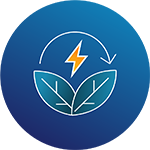
Hydrology
Water, Water Everywhere
Water is among the most important resources on our planet. Without it, life would not exist. Hydrologists study how water moves across and through Earth’s crust. They study how rain, snow, and other forms of precipitation impact river flows or groundwater levels and how surface water and groundwater evaporate back into the atmosphere or eventually reach the oceans. Hydrologists analyze how water influences the surrounding environment and how changes to the environment influence the quality and quantity of water. Hydrologists use their expertise to solve problems concerning water quality and availability and assist in water conservation.[1] The work they do is very important for environmental preservation; for example, they may project water shortages, analyze the quality of potential water sources, or monitor the inflow and outflow of reservoirs. Some hydrologists forecast and help to prepare a region for conditions such as flooding, snowmelt, drought, and the formation and melting of river ice. Hydrologists often serve as consultants to scientists, engineers, developers, and governing bodies.[2]
Hydrologic Cycle
One crucial concept in hydrology is the hydrologic cycle. The hydrologic cycle involves the continuous circulation of water in the Earth-Atmosphere system. At its core, the water cycle is the motion of the water from the ground to the atmosphere and back again.[3] Of the many processes involved in the hydrologic cycle, the most important are:
- evaporation
- transpiration
- condensation
- precipitation
- runoff
The hydrologic cycle starts when water evaporates and moves as water vapor into the atmosphere. Then, the water falls back to the planet’s surface to the oceans and land masses. Once back on Earth, the water may be frozen into icebergs or captured by oceans and rivers. It may soak into the soil, where it can make its way to groundwater reserves or be sucked up by the roots of plants. Human activities—ranging from the operation of a manufacturing plant to the irrigation of a home garden—affect the hydrologic cycle, as well as the availability and quality of water resources.[4]
Groundwater Hydrologists
Groundwater hydrologists study the water below Earth’s surface. Groundwater hydrologists sample and measure properties of water, analyze environmental data, collect samples for analysis, forecast the future water supply, and prepare reports. Some groundwater hydrologists look at water supply to decide on locations for digging wells or pumping.[5] Others focus on groundwater cleanup from contamination. They often help determine the locations of new waste disposal sites to prevent groundwater contamination.[6]
Surface Water Hydrologists
Surface water hydrologists study above-ground water sources such as streams, lakes, and glaciers. Surface water hydrology includes the study of surface water movement and the distribution of surface water in space and time. Of particular interest is the variability in water quantity and flow within a year and between years.[7] Surface water hydrologists work with usage and precipitation data to estimate water levels in reservoirs. Their estimates help reservoir managers make decisions about storing and releasing water to meet demand. They also create flood forecasts and help develop flood management plans.[8]
Hydrogeologists
Hydrogeologists are a type of environmental geologist that study how water interacts with the natural environment of rocks and soils. People with these qualifications can carry out one of two jobs, but sometimes will be expert in both. The first role is that of environmental geographer. They study the relationship between water and rocks and soil as a natural process. Their data will help other experts understand such environmental processes as glaciation, river formation and movement, flood and other natural disaster risk and long-term environmental processes. They help us understand the world around us in terms of the relationship between water and dry land. They will look equally at data collected from the field, GIS analysis and old maps. The second role of a hydrogeologist is to ensure that water supplies remain safe and healthy. Some rock and soils contain contaminants that are harmful to human health. It is their job to identify and mitigate them. Most of these will be naturally occurring contaminants, but they may also be the result of pollutants. They may provide expert analysis in litigation against the businesses responsible should a court case be necessary.[9]
They may also be involved in environmental planning. The amount of waste that we produce requires space to put them. Hydrogeologists will look at the underlying soil and geology of proposed sites to ensure that pollution risks are low (for example subterranean rivers or lakes that flow into domestic water supplies). Land use planners will often consult hydrologists and hydrogeologists. They differ from hydrologists in that these professionals study surface water rather than how water changes the environment.[10]
Hydrometeorologists mainly study both the atmospheric and terrestrial phases of the hydrological cycle, with emphasis on the interrelationship between them (e.g. the transfers of water and energy between the land surface and the lower atmosphere). Accordingly, the science of hydrometeorology bridges across both hydrology and meteorology. For example, hydrometeorologists are interested in the study of natural hazards of hydrometeorological origin and the mitigation of their effects. Among these hazards are the results of natural processes or phenomena of atmospheric, hydrological or oceanographic nature, such as floods, tropical cyclones, drought and desertification, and the potential impacts of land-cover change and changing climate. Major and important processes of interest to hydrometeorologists are precipitation and evapotranspiration, and also how the land surface partitions energy into different components (sensible, latent, ground heat flux) and how this then affects the overlying atmosphere.[11]
…
Citations
- Hydrologists, Occupational Outlook Handbook, U.S. Bureau of Labor Statistics.
- Hydrologist, Purdue University.
- The Hydrologic Cycle, NOAA
- What is a Hydrologist?, Grand Canyon University.
- Groundwater Hydrologist, Powerful Geography.
- What is a Hydrologist?, EnvironmentalScience.org.
- Surface Water Hydrology, Regional Aquatics Monitoring Program.
- What is a Hydrologist?, EnvironmentalScience.org.
- Hydrogeology, University of Michigan.
- Hydrogeology, University of Michigan.
- Atmospheric Science-Meteorology, Hydrology, and Hydrometeorology, University of Arizona.

The Path to Becoming a Hydrologist
From High School to Your First Job
Build a Solid Academic Foundation
Basics:
Take all available STEM-related courses (biology, physics, chemistry, algebra, geometry, calculus) offered at your school. Take these classes at the most advanced level possible. This will help you to learn to think critically, problem-solve, and build your knowledge base in scientific theory and concepts.
Recommended:
If not available at your high school, take Earth science, environmental science, geology and computer science courses online. You should learn how to write for a scientific and non-scientific audience. The ability to communicate clearly in writing cannot be overstated. Take a course in public speaking.
Keep in Mind:
Get lab work experience through a research internship. Consider doing a water-focused project for your local science fair and look for summer field experiences at near-by colleges and universities. Given the international nature of scientific collaboration, become fluent in at least one foreign language.
Dive In!
And become an expert
![]()
Peruse our library of must-read books
![]()
Thumb through a scientific publication
Take an online course
![]()
Watch an interesting video
![]()
Check out these great websites
Get a

jump on your Academic career
There’s no substitute for experience.
We have compiled a database of thousands of internships, research opportunities, academic programs and specialized training programs so you can get a jump on your academic career.
Internships
Research
Academic Training Programs
And if you need support to fulfill your dreams and ambitions, our searchable database has plenty of scholarship opportunities as well as programs designed to increase diversity in the sciences.
Scholarships
Diversity, Equity & Inclusion
Need Help Finding Your Opportunity?
Our video tutorials explain the ins and outs of landing a great internship, research project or training program.
Make all the right moves
Advice from those who know
Maintain an excellent GPA, especially in the sciences
Try and get an internship at a lab outside of your university labs
Have some work experience on your resume
Spend time in the lab and master basic lab techniques
Attend professional hydrology conferences and seminars
Present your research at student research colloquiums
Build experience through internships or as an undergraduate researcher
Join professional societies and organizations
Stay current by reading professional and scientific journals
Learn about current research projects
What degree is right for you?

Bachelor’s Degree
A bachelor’s degree is required for all entry-level jobs, but advancement will be limited. Students interested in this career path should seek out hydrology concentrations within geosciences, engineering, or earth science programs. Environmental law or public administration is helpful for communicating with people in other fields. Computer modeling, data analysis, and digital mapping are essential skills.
Master’s Degree
A master’s degree in hydrology or a related field will help you set yourself apart and improve their opportunities for specialization and increased earnings in their careers. Relevant graduate degree programs could include studies in environmental law, water resource management, hydrogeology, aquatic biology, or climate change. Obtaining firsthand technical experience, such as working or interning as a technician or assistant in a laboratory is important.
Doctoral Degree
A doctoral degree and most likely extensive post-doctoral work is required if you want to have a career in academia or perform high-level research. Students with a Ph.D. degree in Hydrology or a closely-related field (hydrometeorology, hydrogeology, soil science, water management, engineering science) have multiple career paths and enjoy professional careers in private industry, government and tribal agencies, nongovernmental organizations and nonprofit organizations, and national laboratories.
10 Schools With Excellent Hydrology Programs
Want to see the full list of colleges and universities with degree offerings or relevant courses?
Environmental Hydrology and Water Resources Emphasis
University of Arizona
Watershed Science and Sustainability
Colorado State University
Water Science and Management
University of Idaho
Hydrogeology Specialization
Bowling Green University
Hydrology
UC Davis
Water Science, Hydrology Emphasis
University of Nebraska
Water and Soil Resources
University of Georgia
Environmental Sciences Major: Hydrology Option
University of New Hampshire
Soil, Water, and Ecosystem Sciences
University of Florida
Hydrology
St. Cloud State University
![]()
Tip 1
To work as a hydrologist for a local, state or federal agency, then you may need to obtain a license. You typically need to pass an exam administered by your state’s licensing board or the American Institute of Hydrology.
![]()
Tip 2
Business, finance, marketing, or economics may be useful for consulting jobs. Combining environmental science training with other disciplines, such as engineering or business, will qualify you for the widest range of jobs.
![]()
Tip 3
You should arrange to do an undergraduate research project or internship under one of your professors. This experience will not only bolster your resume but also help you decide which area or areas of hydrology you like best.
Have familiarity with one or more of the following areas

Environmental science

Computer modeling

Environmental policy

Laboratory techniques

Resource conservation
![]()
Advanced mathematics

Geographic information systems
![]()
Data analysis and interpretation

Field survey and analytical techniques

Pollution mitigation
Typical Job Functions of a Hydrologist
Here are some of the interesting things you could be doing.
Analyzing data on the environmental impacts of pollution, erosion, and drought.
Researching ways to minimize the negative impacts of erosion, sedimentation, or pollution.
Evaluating the feasibility of water-related projects.
Identifying problems relating to water quality and availability.
Using computer models to predict droughts, floods, water supply availability and pollution migration.
Controlling floodwaters from rivers.
Managing the cleanup of pollution in coastal wetlands regions.
Collecting water and soil samples for analysis.
Monitoring groundwater aquifers.
Using monitoring equipment to measure the properties of water bodies.
There’s an Ocean of Possibilities
Common positions include:
- Hydrologist
- Research Hydrologist
- Groundwater Hydrologist
- Hydrogeologist
- Hydrometeorologist
- Groundwater Engineer
- Groundwater Consultant
- Groundwater Programs Director
- Hydraulic Engineer
- Hydrologic Engineer
- Hydrologic Systems Analyst
- Public Health Managers
- Professor
- Atmospheric Scientist
- Civil Engineer
- Compliance Director
- Conservationist
- Environmental Lawyer
- Environmental Consultant
- Environmental Engineer
- Environmental Geophysicist
- Environmental Health Technician
- Environmental Scientist
- Environmental Technician
- Field Manager
- Oceanographer
- Project Manager
- Sanitarian
- Water Quality Analyst
- Water Resource Engineer
- Water Resource Specialist
- Watershed Manager
- Wetland/Soil Scientist
Common employers include:
- Colleges and Universities
- National Laboratories
- Engineering Firms
- Municipalities
- Agricultural Companies
- Industrial Companies
- City Agencies
- County Agencies
- State Agencies
- Tribal Agencies
- Federal Government
- Department of Energy
- Environmental Protection Agency
- National Weather Service
- S. Geological Survey
- Non-governmental Environmental Organizations
- Environmental Non-Profit Organizations
- Volunteer Organizations
- World Bank
- Architectural Firms
- Environmental Consulting Firms
- Technical Consulting Firms
- Scientific Management Firms
Start your career search with our extensive list of employment websites.
